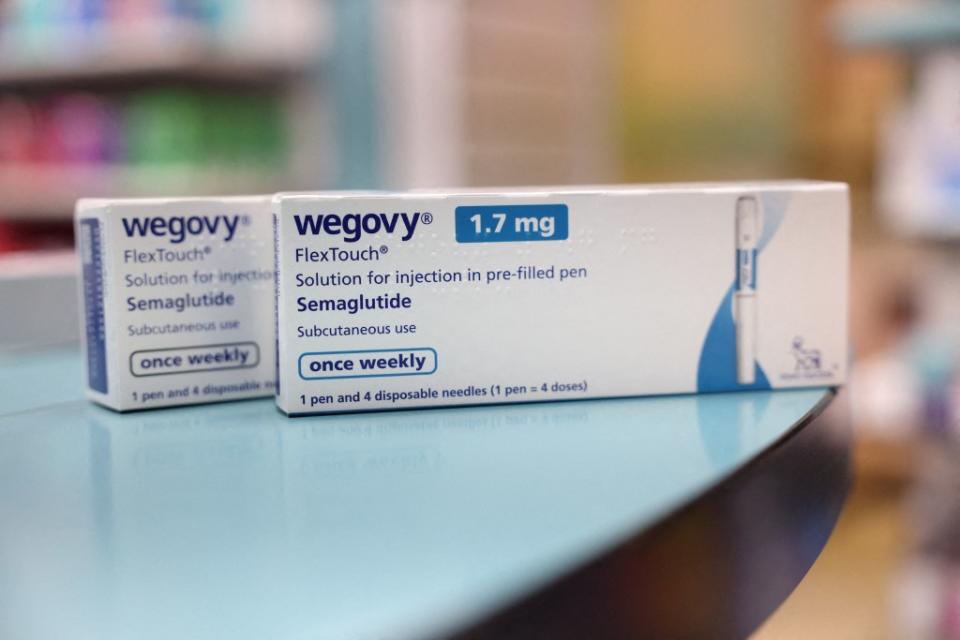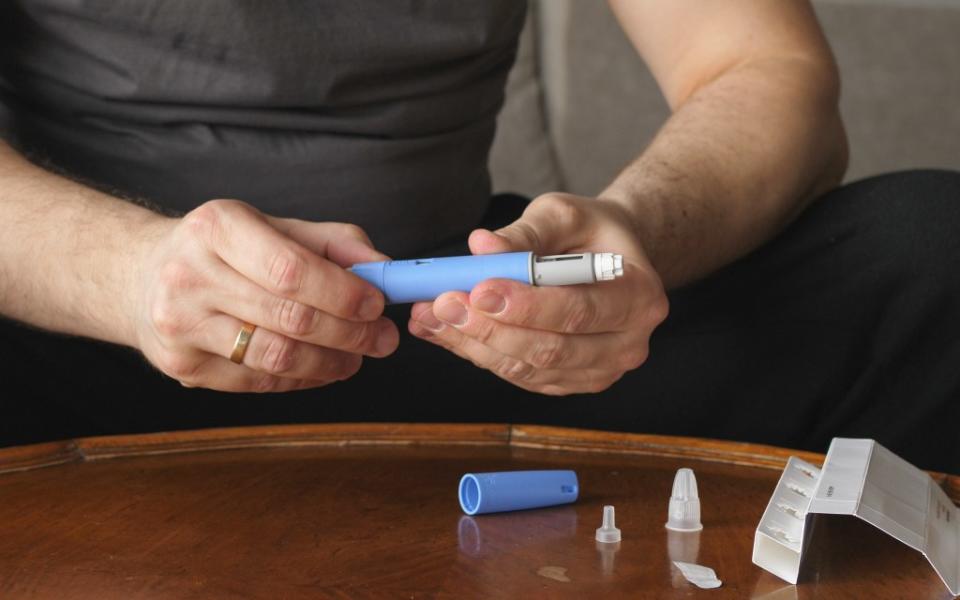Ozempic use appears to be changing people’s personalities —experts think they know why

Move over, Ozempic finger, Ozempic face and Ozempic butt — say hello to Ozempic personality.
The latest transformative outcome of the buzzy weight loss drug may be the most profound yet, with a growing number of patients claiming that the GLP-1 medication — and others like it — have caused anxiety, depression and suicidal ideation, even as they shed the pounds.
Looking into the science behind the life-changing jabs, experts revealed why the medications, originally intended to treat diabetes, could be changing people’s personalities and behaviors.

Ozempic, and other popular treatments like Wegovy, have an impact on dopamine levels, which are responsible for a range of functions.
Along with impacting our emotional and physical drive for food, the brain chemical impacts feelings of reward, pleasure, motivation and movement.
These changing levels could help explain why some users have even claimed the drugs have also reduced their cravings for drugs, alcohol and sex.
Dr Kent Berridge, a professor of psychology and neuroscience at the University of Michigan, explained to The Daily Mail that both addictive substances and food activate the same dopamine signals and reward-learning regions in the brain.
He also noted that: “Cravings for addictive drugs are also amplified by hunger.”
“When researchers are trying to get animals to learn to self-administer cocaine, they often will keep them hungry for a little while, as this helps them learn,” Dr. Berridge explained.
The medical expert added: “Hunger is specifically for food but it’s more general than that, it activates craving for a lot of things. If you’re hungry, the motivational value of things, even that are not food, seems to increase.”

Because these drugs help patients to feel satiated for longer, experts believe they then also lessen cravings for things other than food as well, such as drugs and alcohol.
“Satiety may be not only reducing the craving for food, but potentially for other things,” Dr. Berridge said.
GLP-1 drugs appear to alter the motivational dopamine systems, dampening but not eliminating desires. For example, patients have found that they don’t lose their appetites but eat less while on these medications which experts believe could translate to other vices.
“That would be a possibility — taking the [edge off certain cravings], and those are the ones that are problematic if you’re trying to lose weight or if a person is trying to stop taking drugs,” Dr. Berridge said.

He also shared that a decreased libido while on GLP-1 drugs is “conceivable.”
Dr. Berridge explained that because sex is a pleasurable natural desire, suppressing the reward pathway could lead to a reduced sex drive.
“If you’re suppressing [dopamine activation] a little bit and cutting down those mountain peaks, sexual desire is a natural peak, so that would be plausible,” the medical expert said.
However, he admitted that exacly how GLP-1 drugs are suppressing dopamine systems is still unknown.
The US Food and Drug Administration’s adverse event reporting system received 606 reports of psychiatric disorders connected to Ozempic, along with 324 reports connected to Saxenda and 190 to Wegovy in 2023.
The FDA requires that medications for weight management that work on the central nervous system, including Saxenda and Wegovy, carry a warning about suicidal thoughts.
Ozempic, which is only FDA-approved to treat diabetes, does not come with that warning.
Research has shown that bariatric surgery patients have an increased risk for suicide and self-harm behaviors following the procedure.
Lead study author Dr. Alexis Conason, a licensed psychologist in NYC, noted that triggering experiences such as changes in quality of life and unrealistic expectations also occur to those going through other weight loss treatments such as Ozempic.
“People put so much emotion and hope into weight loss, and are sold this fantasy that if they just lose weight everything’s gonna be okay and all the good things that they want in life will come when they lose weight,” Conason previously told The Post.
However, some patients have reported this changed mindset even when the needle on the scale drops but experts aren’t shocked.
“It’s not necessarily surprising when you see there may be an increase in suicidal ideation and other things like that because you’ve taken away a really important coping mechanism for many people,” Brooke Boyarsky Pratt, CEO and co-founder of weight-inclusive care company Knownwell, told The Post in 2023.

Dr. Gregory Dodell of Central Park Endocrinology also noted that patients on medications that suppress their appetite may not be getting sufficient nutrients, which in turn disrupts their mental stability.
“So much of balancing our body is about what we eat and drink,” he said.
The European Medicines Agency recently said there was no evidence for a causal link between Ozempic and suicidal thoughts. The FDA came to a similar conclusion in January.
The weight-loss drugs have risen in popularity so quickly in the last few months that the FDA announced shortages as the medication flew off the shelves.
But some experts have also warned that they have not been available long enough to study the long-term effects and are likely being misused by some as a quick way to shed a few pounds.
If you are struggling with suicidal thoughts or are experiencing a mental health crisis and live in New York City, you can call 1-888-NYC-WELL for free and confidential crisis counseling. If you live outside the five boroughs, call or text 988 or chat 988lifeline.org.
